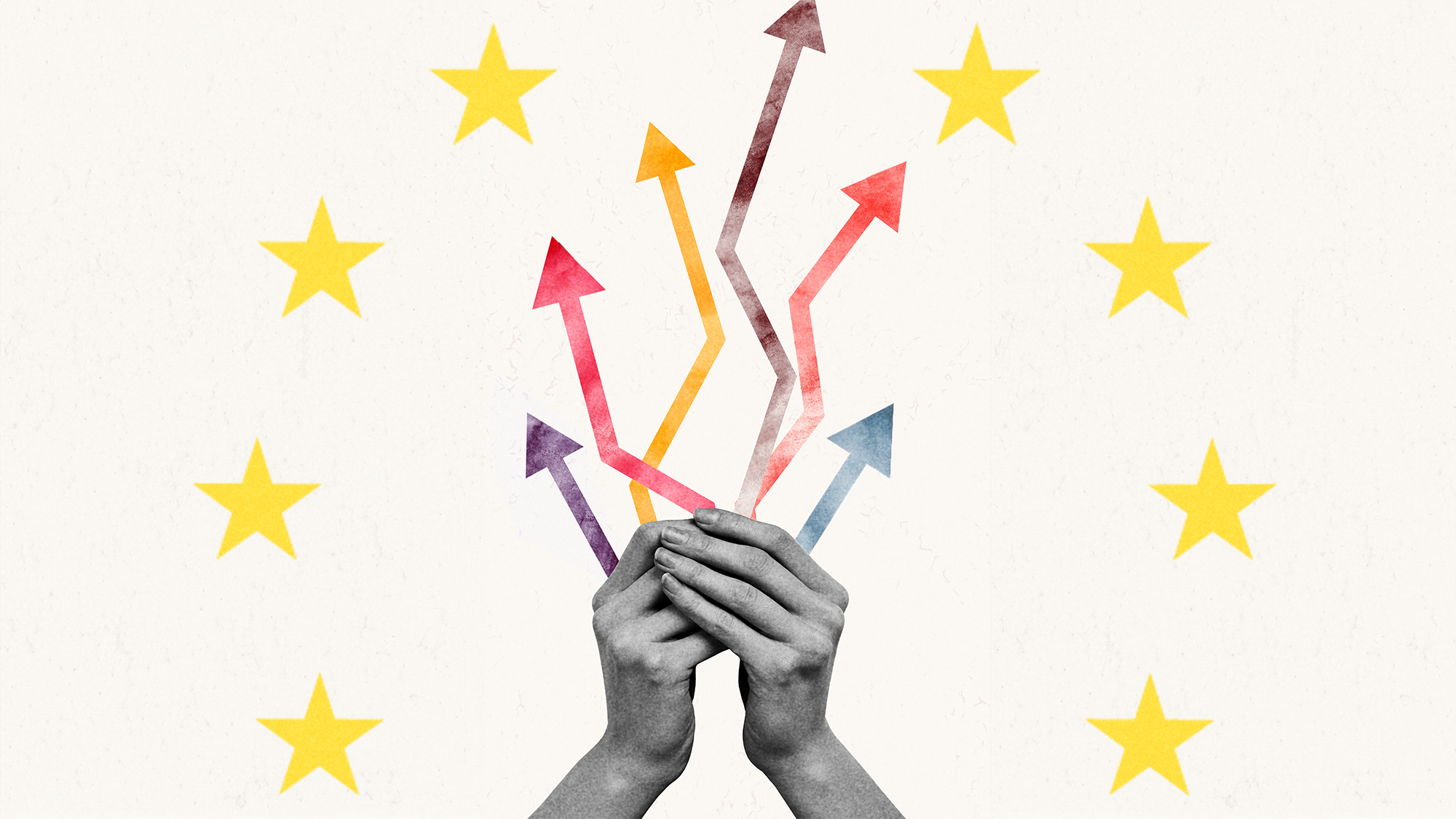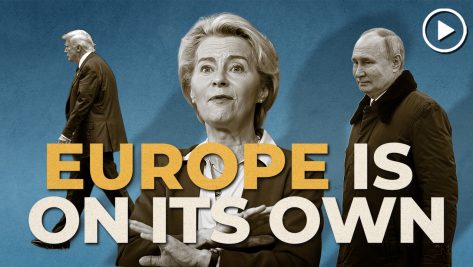The rise of the populist far-right in European politics is no longer a simple matter of speculation. Leaders’ statements and actions are making headlines, indicating that the cordon sanitaire – which once shielded European integration from extremist influences – is cracking.
For followers and participants of the European Parliament (EP) elections, this is not a new topic of conversation. We have observed and discussed the rise of the far-right, let’s admit it, ad nauseum in previous election cycles. However, what sets this election apart is the very real possibility of a coalition between the European People’s Party (EPP) – the Christian Democrats of Europe – and the far-right. This will signal a departure from the traditional political culture of the grand coalition.
Historically, EP’s policy positions were shaped around a shared centrist understanding of progress. The term “progress” was not even used in an ideological sense; rather, it emerged from a compromise between the Social Democrats and the Christian Democrats as the representatives of mainstream politics in Europe, parties that have championed European integration for decades.
In the 2019 EP elections, the grand coalition lost its majority – and this opened up the field to coalitions with the Liberals and the Greens. Even with the many nuances in policy preferences, the pro-European super-grand coalition remained intact.
But 2024 is different. The Parliament is shifting to the right, with the latest polls suggesting that more than 25% of the members will likely sit further to the right of the EPP.
Some of these parties, such as Italian Prime Minister Giorgia Meloni’s Brothers of Italy, are keeping the EPP close. It is no secret that there are ongoing conversations between the current European Commission President, Ursula von der Leyen – who is also the lead candidate of the EPP – and Meloni, the strongwoman of the “new right.”
The essence of the new right is that, after a disastrous Brexit, they do not seek to leave the EU; instead, they aim to change it from within. Influencing the Commission’s president and its agenda would constitute real change. Instead of focusing on progress and integration, they would prefer to prioritize national sovereignty. As might be expected, the Social Democrats have already announced that they won’t back von der Leyen for another term if she is supported by the European Conservatives and Reformists (ECR).
The results of these negotiations and post-electoral coalitions will surely impact issues related to the single market, migration, and enlargement. For example, on immigration, the right will continue to move the center towards increasingly restrictive policies such as stricter border controls and reduced refugee quotas. A Europe influenced by the right would prioritize national security concerns over humanitarian obligations given that, as Rosa Balfour and Stefan Lehne of Carnegie Europe note, most of the radical right “favors a ‘Europe of nations’ organized strictly along intergovernmental lines and leaving maximum freedom to the member states.”
Most importantly – and rather unfavorably – the right’s influence would greatly impact the green transition. Research has found that in general, “when right-wing populists come into power, they can be expected to be disruptive of climate policy.” In the case of Europe and these upcoming elections, environmental regulations would likely face pushback from the new right, who would argue for less stringent standards in an effort to protect industries and jobs.
We may awaken to a less progressive Europe that places less importance on green and social issues.
This is not just an interplay between the EP and the European Commission. EU leaders are preparing to set the direction of the Union in the upcoming European Council meeting, aiming to respond to the geopolitical upheaval with the new Strategic Agenda.
According to a leaked version, it is all about defense and competitiveness, with a pinch of rule of law for the next legislation. This is not too surprising in a world of war and great power rivalry. It signals, however, an identity change in European integration.
The aftermath of the EP elections could mark a turning point. On the 10th, we may awaken to a less progressive Europe that places less importance on green and social issues. It is widely known that the European Commission has already toned down its ambitions for the green transition, citing farmer protests across Europe as justification. Toning down ambitions is one thing but omitting them from the EU’s strategic agenda would be a completely different matter.
Looking at the European Union today, the issues that impact citizens the most are the cost of living, poverty, and social exclusion. There is a housing crisis in most European capitals. The effects of climate change are ever more visible: wildfires, heatwaves, and floods. Disinformation is undermining our democracies every single day.
Social cohesion – both between and within countries – is a major issue. Enrico Letta’s latest report underlines that if we do not address the issue of socioeconomic convergence, the single market will never function properly and there will continue to be some countries that experience brain drain while there will be excessive migration in others.
Demography presents another striking challenge. The European population is shrinking. Moreover, the best and brightest look for career opportunities elsewhere, especially when it comes to critical industries like AI. Investment in higher education and targeted policies to increase innovation are critical for the EU’s future and are an integral part of the competitiveness agenda.
All these dimensions are part of a common agenda for progress – progress for European citizens. The green, digital, and demographic transitions are equally vital for the future and also the key to the EU’s role in the world.
The reality of today is that war has returned to the continent, and there is a legitimate discourse on defense (which should focus on how to spend more effectively and collaboratively, not just more.) However, the European Union does not have the luxury of playing favorites with priorities. Neglecting social, economic, and environmental concerns in favor of defense and security issues would be short-sighted and ultimately detrimental to the Union’s long-term stability and prosperity.
Thus, in order to navigate this landscape and continue its role as a strong, united, and resilient entity, the EU must do nothing less than tackle multiple challenges head-on. Failing to do so would not only undermine the EU’s ability to effectively respond to geopolitical threats but also erode the very foundation upon which the Union is built. A less progressive future looms before us but we must turn away from it if the EU is to maintain its position as a global leader and safeguard the well-being of its citizens.
© IE Insights.











